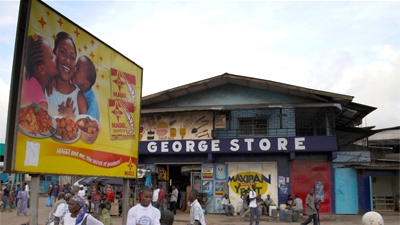October 23, 2012 -- After years of devastating civil war and political upheaval, Liberia is taking steps to reform its economy with support from the World Bank Group’s investment climate teams. And Liberian entrepreneurs, who the government hopes will create jobs for their fellow citizens, are benefiting from their efforts.
The establishment of a one-stop business registry, which has made it easier for over 11,000 entrepreneurs to start a business, is one major step forward. Launched in April 2011, the Liberia Business Registry (LBR) now operates in the country’s three main cities of Monrovia, Ganta and Buchanan. And plans are in the works to have branches of the registry throughout the country, according to Abu Kamara, Liberia’s registrar of companies.
Before the new registry, prospective businesses had to deal with several government offices and long procedures. The old system, Kamara said in an interview, made for a business environment that was less than ideal. “No one would like to invest in a society where there are a lot of bottlenecks, where there are a lot of cumbersome procedures, where there are a lot of problems in starting a business,” he said.
Now, the entrepreneurs who are re-energizing Liberia’s economy no longer have to wait 100 days for a business license. The new registry has fully automated the previously manual application process. Transactions connected to registering a business that previously required multiple trips to different offices now take place under one roof. According to Kamara, “With the establishment of the LBR, we spend at most 48 hours, two working days – at most – to register an enterprise when all requirements are presented by the entrepreneur.”
In addition to the new business registry, the Investment Climate Program has also supported other improvements, such as the elimination of the business registration license fee of 4,200 Liberian dollars ($57) and an online portal with useful information for entrepreneurs involved construction, trading, mining, logging, agriculture and other enterprises. In addition, according to Doing Business, starting a business in Liberia now only requires four procedures, compared to sub-Saharan Africa’s eight and five for the OECD. Because registering businesses is easier, more entrepreneurs are able to reap the benefits of formalization such as better access to finance, lowered risk of penalties and more employee protection.
Since June 2011, more than 11,000 businesses have used the one-stop business registry. As the government works toward President Ellen Johnson Sirleaf’s vision of “an economy to accommodate all Liberians, from the biggest landowner to the smallest petty trader”, there is hope that the reforms will ignite the entrepreneurial spirit in many more Liberians. The government’s partners in the World Bank Group are optimistic. “This one step taken by the Liberian Government is a giant leap for Liberian businesses,” International Finance Corporation Resident Representative in Liberia Jumoke Jagun-Dokunmu has said. By committing to economic reforms, a country once that was once torn apart by conflict looks to be on the path to stability and growth.

